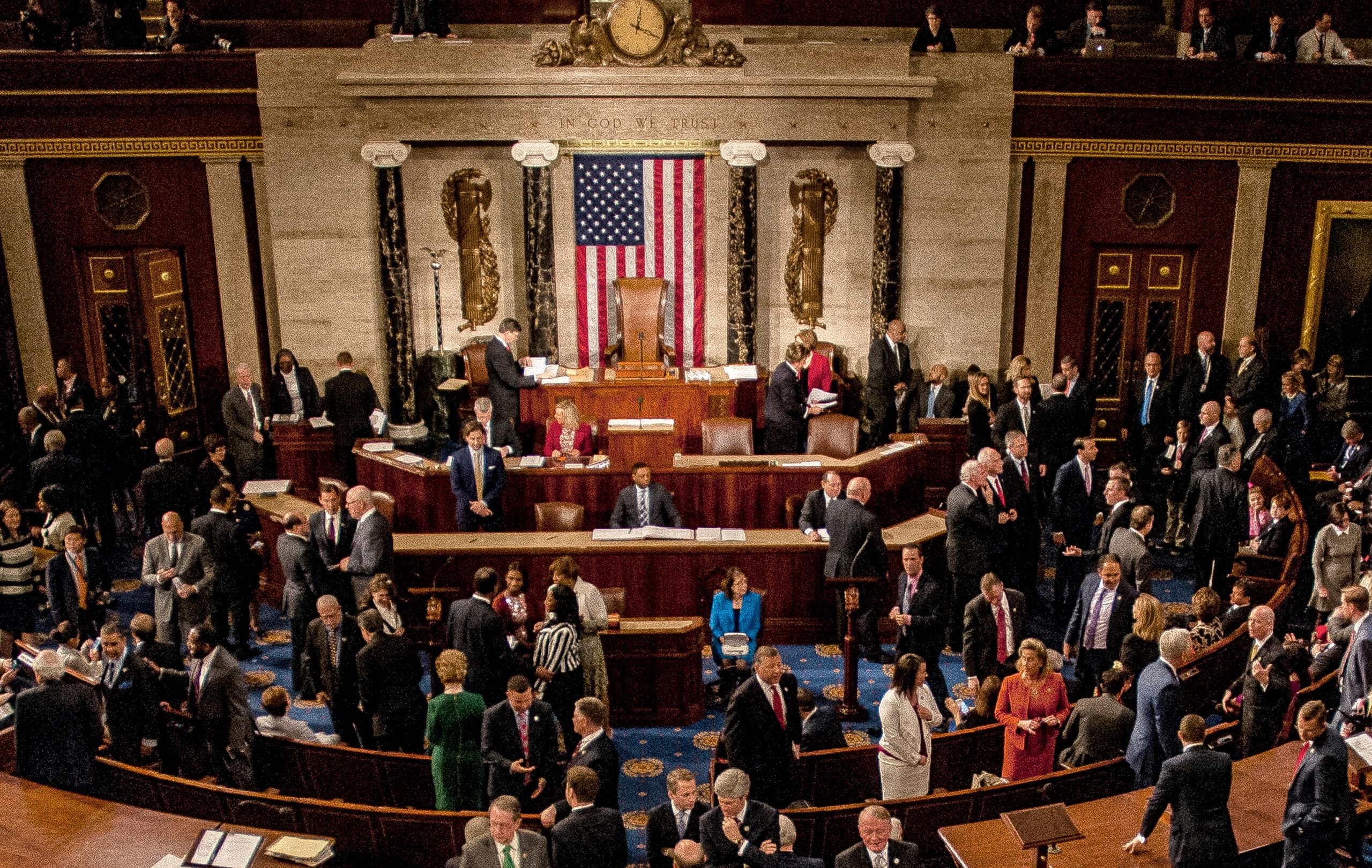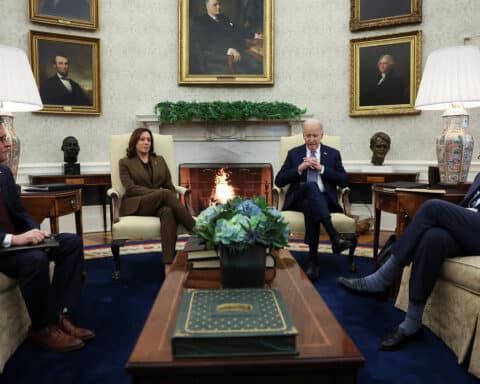The recent tumultuous developments in the GOP’s quest to elect a speaker of the House of Representatives highlight the fractures within the party and underscore significant moral and ethical issues. To navigate the current situation, as Catholics, we find resonance in the principles of Catholic social teaching, which emphasize the dignity of every individual, the common good, and solidarity. These principles must guide the process of electing a speaker, a position of paramount importance in our democracy.
One of the fundamental tenets of Catholic social teaching is the intrinsic value and dignity of every human being. It is a recognition that everyone, regardless of his or her political affiliation or personal history, deserves respect and a fair hearing. The U.S. bishops teach, “Our commitment as people of faith to imitate Christ’s love and compassion should challenge us to serve as models of civil dialogue, especially in a context where discourse is eroding at all levels of society” (“Forming Consciences Faithful Citizenship”). The political infighting and pressure campaigns of the current speaker contest represent a troubling departure from the principle of respecting the dignity of individuals.
Furthermore, Catholic social teaching underscores the importance of the common good, emphasizing that society should work to benefit all its members, not just a select few. As Pope Francis reminds us, “Politics, though often denigrated, remains a lofty vocation and one of the highest forms of charity, inasmuch as it seeks the common good. … I beg the Lord to grant us more politicians who are genuinely disturbed by the state of society, the people, the lives of the poor!” (Evangelii Gaudium, No. 205). The speaker of the House plays a pivotal role in shaping policies and legislation that directly affect the well-being of all Americans. Therefore, the process of selecting the speaker should prioritize candidates who have demonstrated a commitment to the common good over narrow partisan interests.
Responsibility of the representatives
The inability to elect a speaker hampers the legislative process, creating gridlock that prevents the passage of vital legislation that could alleviate the suffering of those most in need. Inaction on critical matters — whether they concern abortion, healthcare, poverty, immigration or family policy — reflects a disregard for the moral imperative to serve the common good.
When Pope Francis addressed the U.S. Congress, he reminded our legislators, “You are called to defend and preserve the dignity of your fellow citizens in the tireless and demanding pursuit of the common good, for this is the chief aim of all politics.” It’s time for our elected representatives to demonstrate their commitment to the common good by finding the unity and common purpose needed to fulfill their roles as public servants.
Solidarity, another core principle of Catholic social teaching, highlights the importance of standing together as a community. It calls for unity and cooperation among the members of a nation to address society’s challenges. This principle directly speaks to the need for unity among our elected representatives, and a true desire to work together, when selecting a speaker. Fragmentation and division only serve to undermine governance and, more importantly, to uphold the common good effectively.
The responsibility of maintaining a strong republic falls on the elected representatives of the people, and it is a responsibility that must be guided by moral and ethical principles, particularly those espoused by Catholic social teaching.
Serving the common good
If the Republican Party is to maintain its integrity and adhere to the values it claims to represent, it must resolve to elect a speaker who embodies the principles of respecting the dignity of every individual, working for the common good, and fostering solidarity among its members. This is a political imperative and, more significantly, a moral one. Failure to do so would be a betrayal of the voters who entrusted the party with a House majority and a departure from the ethical foundations that should guide our democracy.
In these challenging times, we hope the GOP can find a speaker who, inspired by Catholic social teaching, will lead with integrity, humility, and a commitment to the well-being of all Americans. This is the path to keeping the republic, strengthening it, and ensuring that it truly serves the common good.





